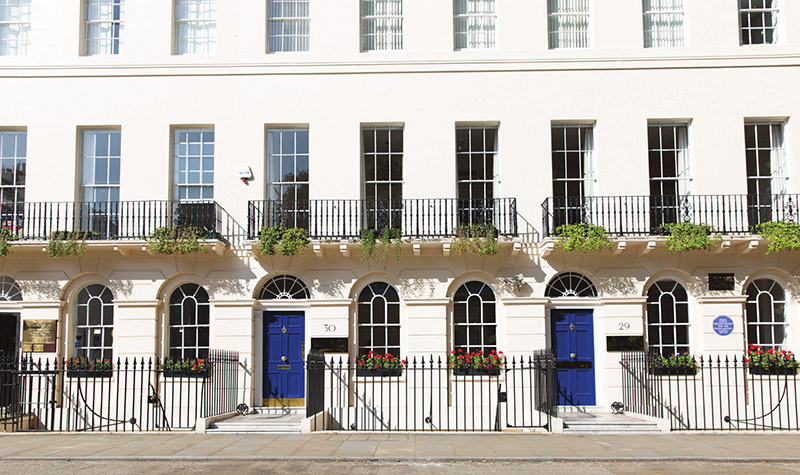Since Brexit, over a third of Irish companies continue to prioritise expansion into the UK, recognising it as a key growth market.
This guide highlights some of the key issues to consider for Irish businesses looking to set up in the UK.
Contents:
- What UK structure is best for me?
- How easy is it to form a UK entity?
- What will I need to open a UK bank account?
- What issues do I need to be aware of regarding staff?
- What ongoing administration costs should I be aware of?
- What is the UK competitor marketplace like? What do I need to be aware of?
- What are the business tax considerations for an Irish group expanding into the UK?
- What are the VAT implications for Irish businesses expanding into the UK?
- What do I need to be aware of re Irish residency status?
- Are there any grants I can get from either the Irish or UK to support my expansion to the UK?

1. What UK structure is best for me?
We can help you explore which structure is most suited to your requirements – typically, but not limited to, either a UK limited company, a UK partnership or a UK-registered branch of the parent company.
2. How easy is it to form a UK entity?
This is one of the attractive elements of setting up in the UK compared to other jurisdictions. Once you have decided what structure suits your business, the process of setting it up can be very quick. In some cases it can be a matter of days.
3. What will I need to open a UK bank account?
This is an area that can cause delays but having all the relevant identification documentation ready is essential. The documents you are typically asked for are:
- Two forms of ID, including a photo form such as a passport, for the individual opening the account, or for the director(s) and company secretary (and beneficial owners) if a company.
- A valid bank mandate form, confirming that you have the authority to open an account on behalf of the business.
- Signature samples for anyone with authority to use the account.
- The Company Constitution and Certificate of Incorporation (for limited company only).
- Evidence of partnership (if you are applying as such).
- Certificate of business name (for sole traders and partnerships).
We have found that proper business plans, showing objectives and forecasts are a wise investment, not just for the bank.

4. What issues do I need to be aware of regarding staff?
UK employment law is a key area you need to be aware of and you cannot assume that local employment law and practice is the same as that in the UK. In particular you need to look at employment contracts, employment rights and the mandatory pension payments under auto-enrolment.
We can advise on all aspects of bringing Irish employees, directors and partners to the UK including:
- Difference between Irish and UK social security rules.
- Payroll tax re secondments.
- Considering employment tax issues whether they are ex- pats relocating or new employment of locals.
- Helping employers evaluate the position regarding salary equalisation across countries.
- Providing HR advice and support including creating staff handbooks and providing interview support.
- Providing your payroll operation including payroll equalisation and support with P11D compliance.
- Advising on UK auto-enrolment and pensions issues.
5. What ongoing administration costs should I be aware of?
All structures have operating costs, whether it is a need for an audit or similar reporting requirements. We can guide you through your statutory obligations and provide the necessary assistance.
6. What is the UK competitor marketplace like? What do I need to be aware of?
Setting up in a new jurisdiction is an exciting step but obviously carries some commercial risks. Understanding your competitor marketplace in advance can help to identify those issues and the opportunities and threats.
We can undertake peer review analysis within your marketplace, highlighting key issues, competitors and trends in the UK for your operation. As a reference point for our external data, we use IBIS World, which is used by the major clearing banks to assist in informing their lending decisions. While at the same time, using both your forecasts and reported results, to look at KPIs for your business and provide strategic insight.
We can review your particular market place and highlight key issues, competitors and predictions for the UK operation.
7. What are the business tax considerations for an Irish group expanding into the UK?
You will need to get your tax strategy right from the outset. Given the tax rates in the Republic of Ireland, careful thought and tax planning will be required. Key drivers include; transfer pricing, financing structures and profit repatriation.
Given the differential in corporate tax rates, a defendable transfer pricing policy is a key to profit repatriation.
You will need to look at the consideration of the proposed business model and risk allocation between parent and subsidiary to identify the nature of the return the UK operation should be seen to achieve.
You will need to identify the transactions/inter-company interactions which could be covered by transfer pricing rules.
Ideally you would benchmark to confirm the appropriateness of the inter-company prices charged.
Debt structures
Debt structures should be considered with a view to minimising the risk of tax inefficiency. Not all debt costs are automatically deductible.

8. What are the VAT implications for Irish businesses expanding into the UK?
The extent that the UK does, or does not, remain in the customs union will have a significant impact on VAT obligations. As will the location of the border between ourselves. We can guide you through the alternatives for sales of goods and services as well as providing the necessary assistance in registrations and reporting.
9. What do I need to be aware of re Irish residency status?
Irish residents need to be alive to the issue of inadvertently ending up with dual residency issues which can complicate matters. Make sure you take tax advice before any individuals, whether employees, directors or partners, come to the UK, even for scoping visits.
There are compliance issues to be considered before hand and the opportunity to arrange the individual’s affairs in the most tax efficient way for both the paying entity and the individual themselves. For example, the UK has very detailed domestic residency rules which can either cause problems or simplify matters. It is always more expensive to sort out the historical position.
10. Are there any grants I can get from either the Irish or UK to support my expansion to the UK?
 Be aware of the Enterprise Ireland grants which are available for Irish businesses looking to research potential acquisition targets
Be aware of the Enterprise Ireland grants which are available for Irish businesses looking to research potential acquisition targets
R&D tax credits
The UK government is encouraging innovation with some generous R&D tax credits that are available to businesses who can demonstrate their UK investment in innovation. This relief can make a huge difference to those setting up in the UK and applies across any industry. For example, we have worked with several property and construction companies to help them to successful R&D claims.
We help Irish businesses and their owners to set up in the UK.
How we can help Irish companies set up in the UK
According to research, over a third of Irish companies are looking to expand in the UK throughout 2019-2024 and it remains the priority growth market. Recently of course, much of that has been driven by Brexit as more Irish companies are looking for a UK resident presence.
We provide a complete accounting, tax consultancy and business advisory service for your business, whether it is setting up a UK subsidiary company or preparing your UK VAT Return for your Irish business or any permutation in between. We help companies navigate the complexities of the UK tax code and model the impact vs the Irish tax level, as well as issues such as employment tax.
If you need a UK personal tax return and personal tax advice then we are well positioned to help. Our individuals and families specialist tax team advise Irish nationals on tax issues of coming to the UK, whether that’s temporary and work related or making a permanent move.
As a firm we are very familiar with advising on complex issues and groups such as family businesses that have grown internationally. We have a strength in property and construction as well as other specialist sectors and work closely with Merry Mullen, our sister firm in Dublin.
How we’ve helped:
- We helped a large Anglo Irish construction business with their first and successful UK R&D claim.
- We worked with an international group who decided it needed a Dublin subsidiary in order to maintain business operations across the UK/EU border.
- We are the registered auditors for many UK subsidiaries of international groups and produce UK consolidated accounts. We work to international auditing standards.
- We have provided the financial due diligence for those looking to acquire a UK business.
- We have guided new UK subsidiary set ups through the complex UK employment requirements and created HR manuals for them.
- We have helped to recruit staff for UK set ups.
- We provide benchmarking analysis on the UK market.
Contact
Esther Wood in London on +44 (0) 20 7388 2444 or ewood@goodmanjones.com
Declan Merry or Pat Hoyne in Dublin on +353 1 645 8100 or declan@merrymullen.ie or pat@merrymullen.ie
The information in this article was correct at the date it was first published.
However it is of a generic nature and cannot constitute advice. Specific advice should be sought before any action taken.
If you would like to discuss how this applies to you, we would be delighted to talk to you. Please make contact with the author on the details shown below.








